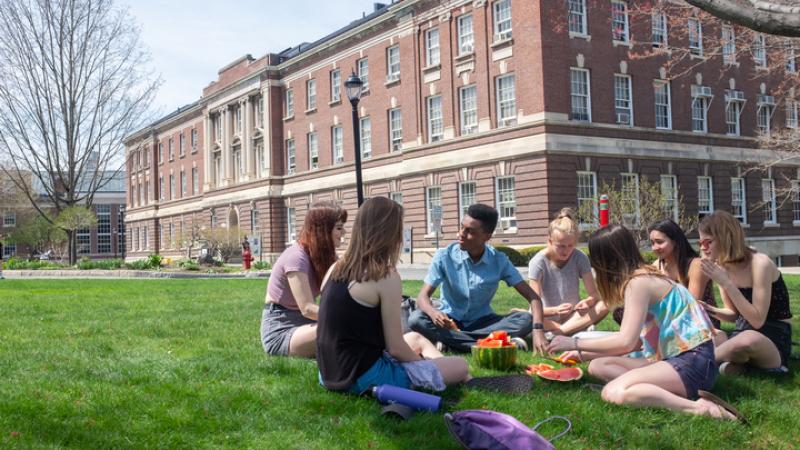New course sequence developed to teach students how to foster a sense of well-being
March 21, 2019

Last year, as the School of Humanities, Arts, and Social Sciences (HASS) at Rensselaer Polytechnic Institute prepared to revamp the university’s core curriculum, students were surveyed about what course sequences they would be interested in. To the surprise of the department’s faculty and administrators, one of the most popular responses (just behind “artificial intelligence” and tied for second place with “game design”) was “well-being.”
In the fall of 2019, HASS will debut more than 30 new “integrative pathways” – themed three-course sequences that are designed to provide focus and cohesion to students’ required undergraduate coursework in the school. In response to student demand, one of the options will be geared toward exploring methods and strategies for leading healthy, fulfilling lives.
“Well-Being: Body and Mind” will be a pathway that combines courses in cognitive science, psychology, philosophy, and the arts in order to introduce and explore concepts relating to the development and maintenance of human well-being. Through courses such as Positive Psychology, Stress and the Brain, Minds and Machines, and Deep Listening, students will have the opportunity to discover the relationships between body and mind and explore their unique path to well-being.
“The interesting thing about well-being is that people often assume what is good for themselves is good for everyone. However, that is not the case because we all come from different backgrounds and have had different experiences,” said Tomie Hahn, a professor of arts at Rensselaer and the leader of the initiative. “Also, we change over time and a practice that supports our well-being today may not work tomorrow.”
Hahn hopes students who complete the pathway will develop an evidence-based understanding of how to support themselves and others in their lives and careers at Rensselaer and beyond.
“It is our responsibility to educate students not only for a career but for a lifetime of fulfillment,” said Mary Simoni, dean of HASS. “This will be a rigorous course of study that will provide the additional benefit of helping our students remain resilient in the face of life’s challenges.”
Based on the student interest in coursework relating to well-being, Hahn and others on campus hope to begin further integrating the methods and practices discussed in these courses into the life of the campus.
“Generating conversations around well-being and how to maintain balance in life is of crucial importance for all of our students, whether they are enrolled in this pathway or not,” said Peter Konwerski, the vice president for student life at Rensselaer. “I look forward to the ripple effects that these new courses have on campus as they help expand on student resilience and success.”
Other pathways that will be launched by HASS in the fall include artificial intelligence, public health, and linguistics. All students will be required to complete at least one pathway in order to graduate. These innovative, interdisciplinary course sequences exemplify The New Polytechnic, the Rensselaer model for education and research.